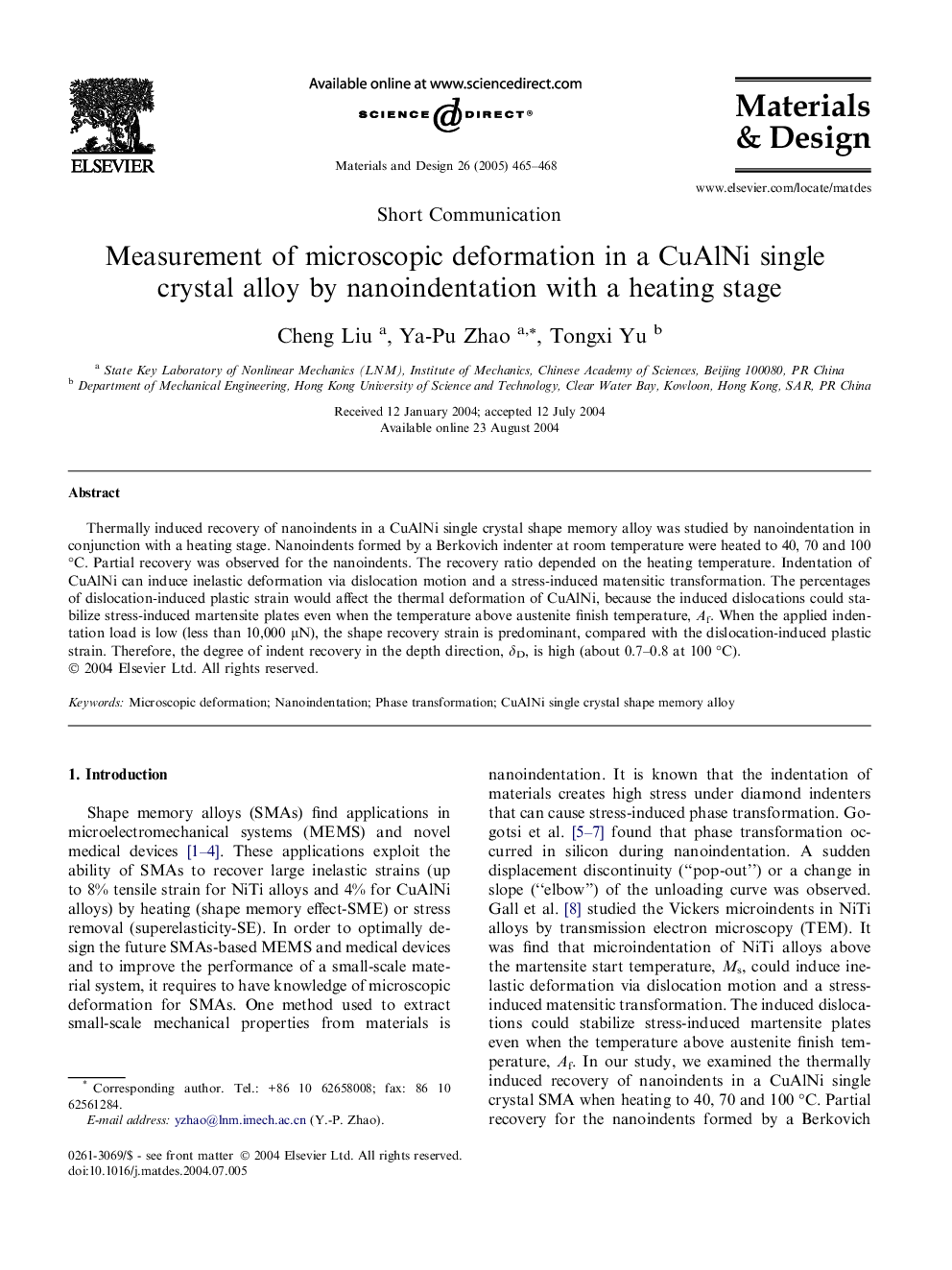| Article ID | Journal | Published Year | Pages | File Type |
|---|---|---|---|---|
| 834040 | Materials & Design (1980-2015) | 2005 | 4 Pages |
Thermally induced recovery of nanoindents in a CuAlNi single crystal shape memory alloy was studied by nanoindentation in conjunction with a heating stage. Nanoindents formed by a Berkovich indenter at room temperature were heated to 40, 70 and 100 °C. Partial recovery was observed for the nanoindents. The recovery ratio depended on the heating temperature. Indentation of CuAlNi can induce inelastic deformation via dislocation motion and a stress-induced matensitic transformation. The percentages of dislocation-induced plastic strain would affect the thermal deformation of CuAlNi, because the induced dislocations could stabilize stress-induced martensite plates even when the temperature above austenite finish temperature, Af. When the applied indentation load is low (less than 10,000 μN), the shape recovery strain is predominant, compared with the dislocation-induced plastic strain. Therefore, the degree of indent recovery in the depth direction, δD, is high (about 0.7–0.8 at 100 °C).
